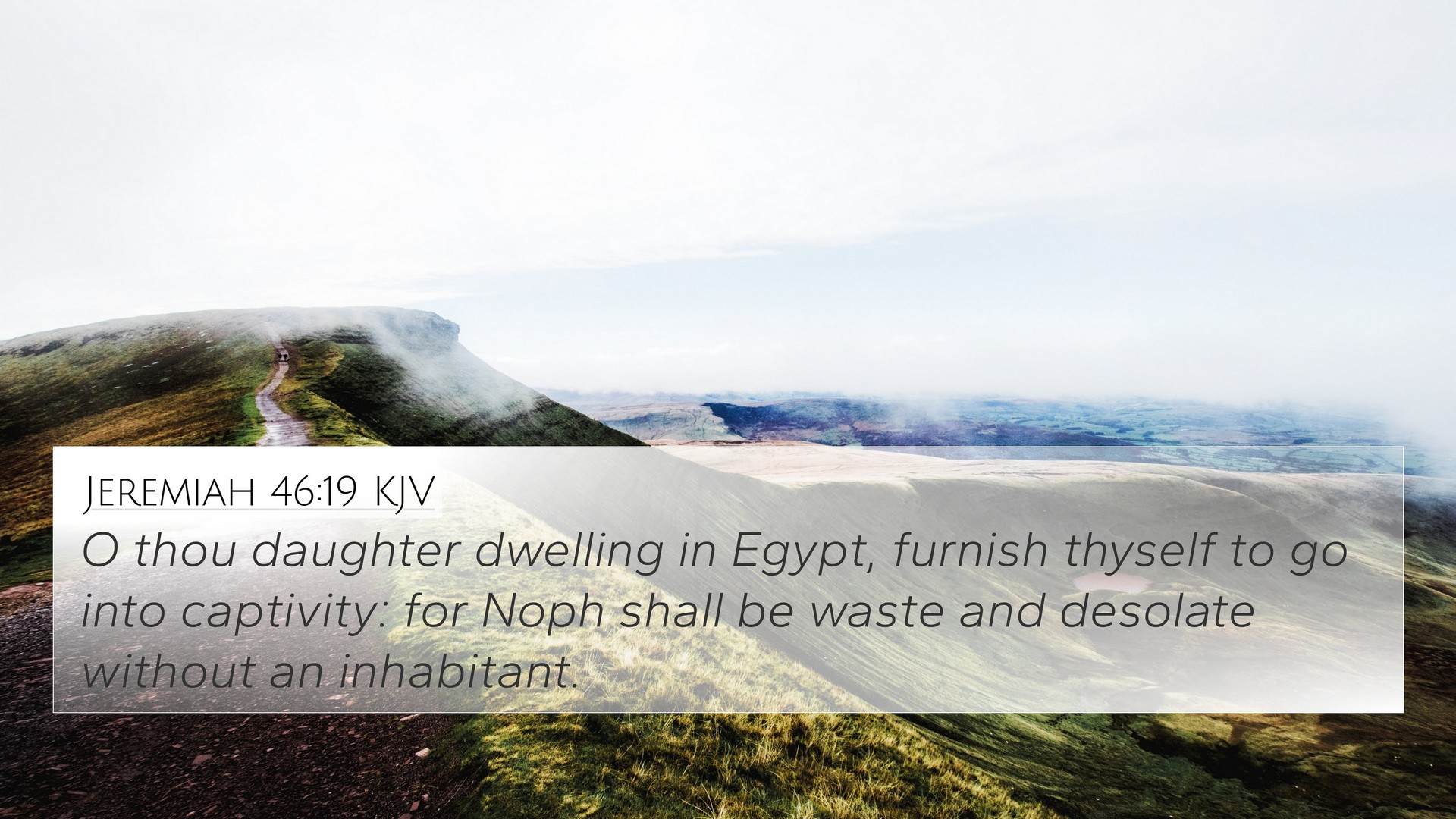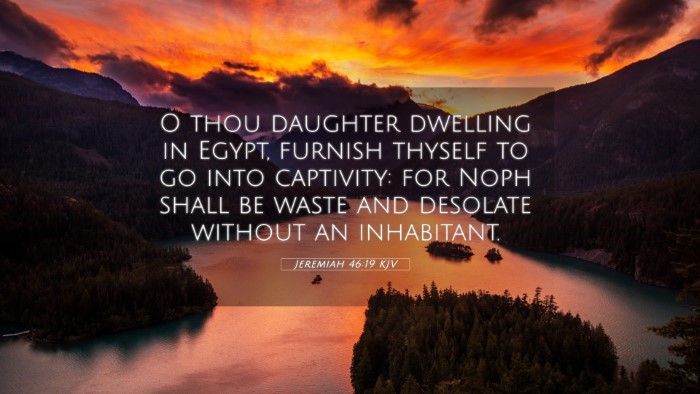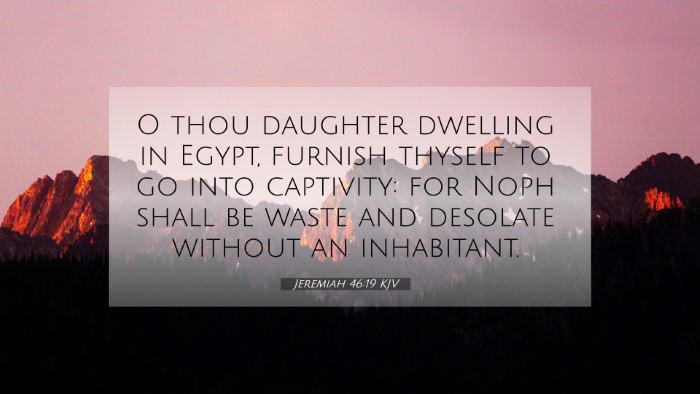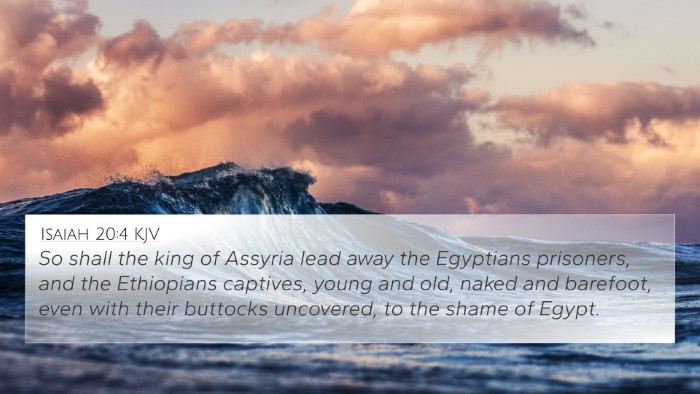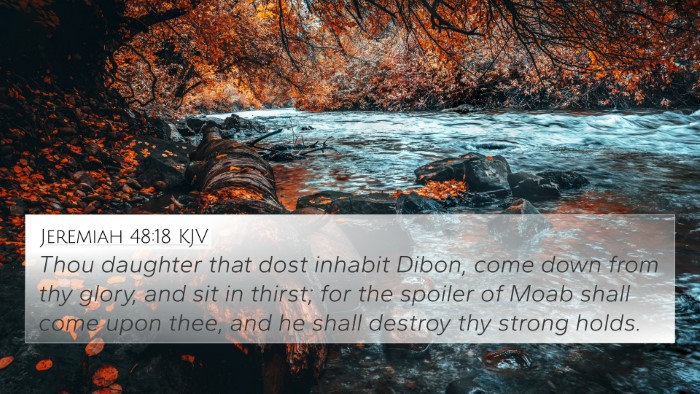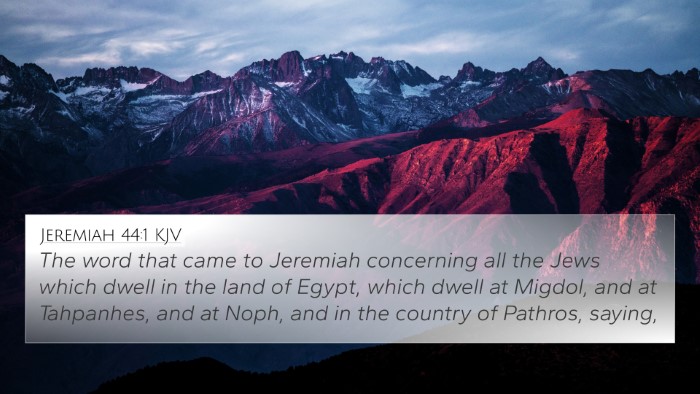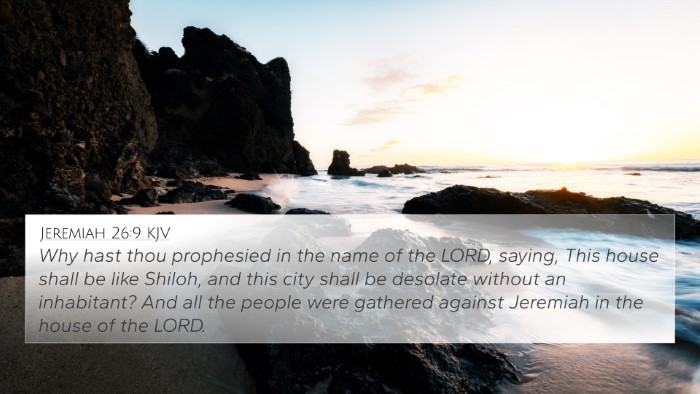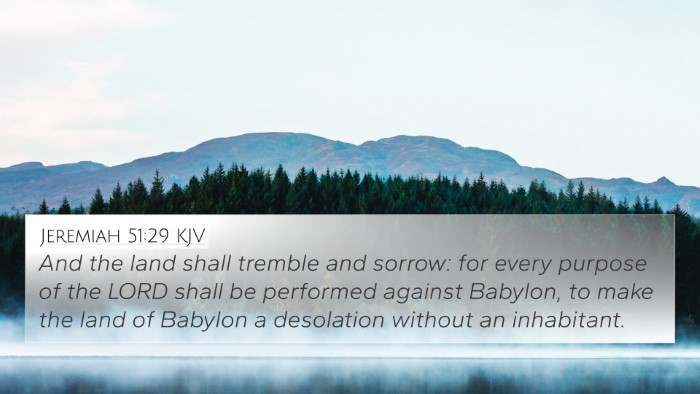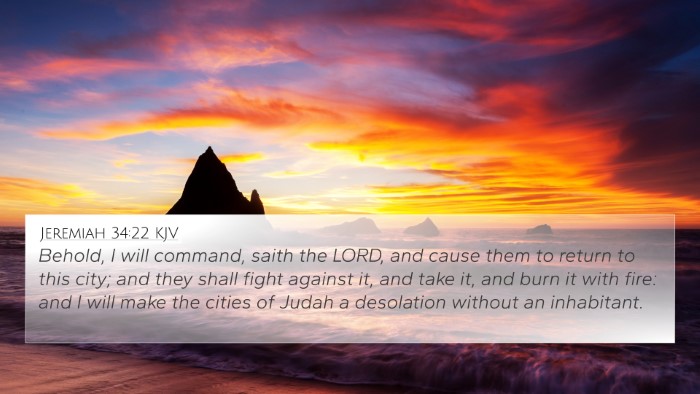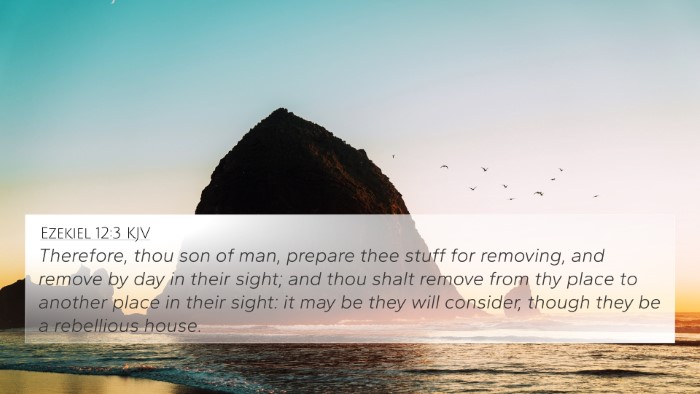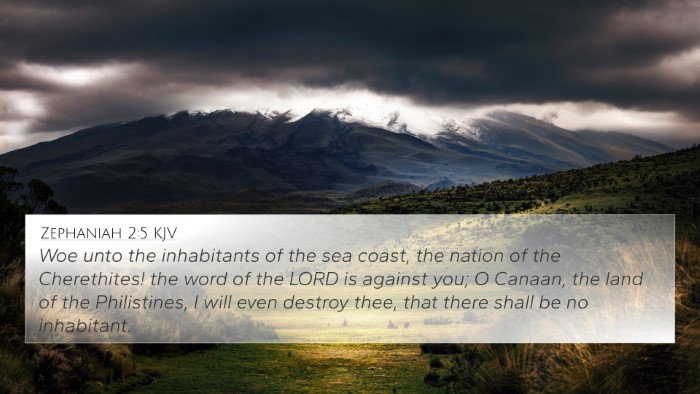Understanding Jeremiah 46:19
Jeremiah 46:19 states: "O thou daughter dwelling in Egypt, furnish thyself to go into captivity: for Noph shall be waste and desolate, without an inhabitant." This verse reflects the judgment against Egypt and the consequences of their rebellion against God. Through cross-referencing this verse with various public domain commentaries, we can gain a deeper understanding of its significance.
Context and Historical Background
In this chapter, Jeremiah prophesies against the nations, particularly focusing on Egypt. The context reveals a time of impending judgment, where foreign powers threaten Egypt, demonstrating the overarching theme of God's sovereignty over nations.
Commentary Insights
-
Matthew Henry: Henry emphasizes that this verse warns the inhabitants of Egypt about their impending doom. The call to "furnish thyself to go into captivity" signifies a preparation for judgment that could not be avoided. The desolation of Noph (another name for Thebes) serves as a poignant reminder of the consequences of sin.
-
Albert Barnes: Barnes explains that Egypt, once a powerful nation, faces inevitable ruin due to its idolatry and refusal to turn towards God. He notes that the mention of Noph being "waste and desolate" serves as a metaphor for any nation that forgets God in pursuit of worldly strength.
-
Adam Clarke: Clarke highlights that this prophecy serves as a parallel to the ultimate fate of nations opposing God. He interprets the call to captivity as a method of divine chastisement, while reminding the readers of the historical context where Egypt was once a haven for Israel, now turned into a place of desolation.
Bible Cross References
Understanding Jeremiah 46:19 is enriched when viewed through the lens of related biblical texts. Here are some cross-references that resonate with its themes:
- Isaiah 19:1-4: This passage speaks of the judgment upon Egypt, mirroring the prophetic declarations in Jeremiah.
- Ezekiel 30:15-16: Here, God declares destruction over Egypt, specifically mentioning Noph as part of the divine judgment.
- Deuteronomy 28:68: The warnings of captivity for disobedience resonate with Jeremiah's message to Egypt.
- Jeremiah 44:30: Similarly, this verse speaks about God’s coming judgment on Egypt for its idolatry.
- Zephaniah 2:13-15: This calls to mind the idea of God making nations desolate for their rejection of Him.
- Psalms 137:1: This reflects the sorrow and desolation experienced by a nation taken into captivity.
- Revelation 18:2: The imagery of the fall of a great city parallels the desolation of Egypt in Jeremiah’s prophecy.
Inter-Biblical Dialogue
The connections between Jeremiah 46:19 and these cross-references establish a cohesive narrative throughout scripture, illustrating God's consistent response to national sin and rebellion. Such thematic connections underscore the importance of repentance and the consequences of forsaking divine instruction.
Tools for Bible Cross-Referencing
Studying verses in conjunction with their related texts enhances understanding. Utilizing Bible concordance and cross-reference guides can identify underlying themes and connections across both Old and New Testaments. Tools such as a Bible cross-reference system can aid individuals in discovering links between passages.
Conclusions
Jeremiah 46:19 presents a profound message about God's sovereignty and the consequences of turning away from Him. By exploring with cross-references and utilizing tools for Bible study, believers can deepen their understanding of scripture, realizing the interconnectedness of God's Word. Through comparative Bible verse analysis, we can appreciate the richness of biblical themes and the divine narrative that spans the scriptures.
